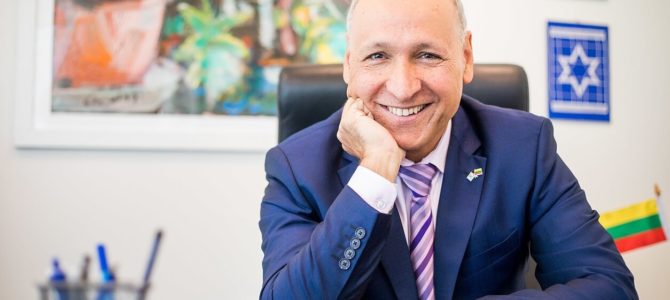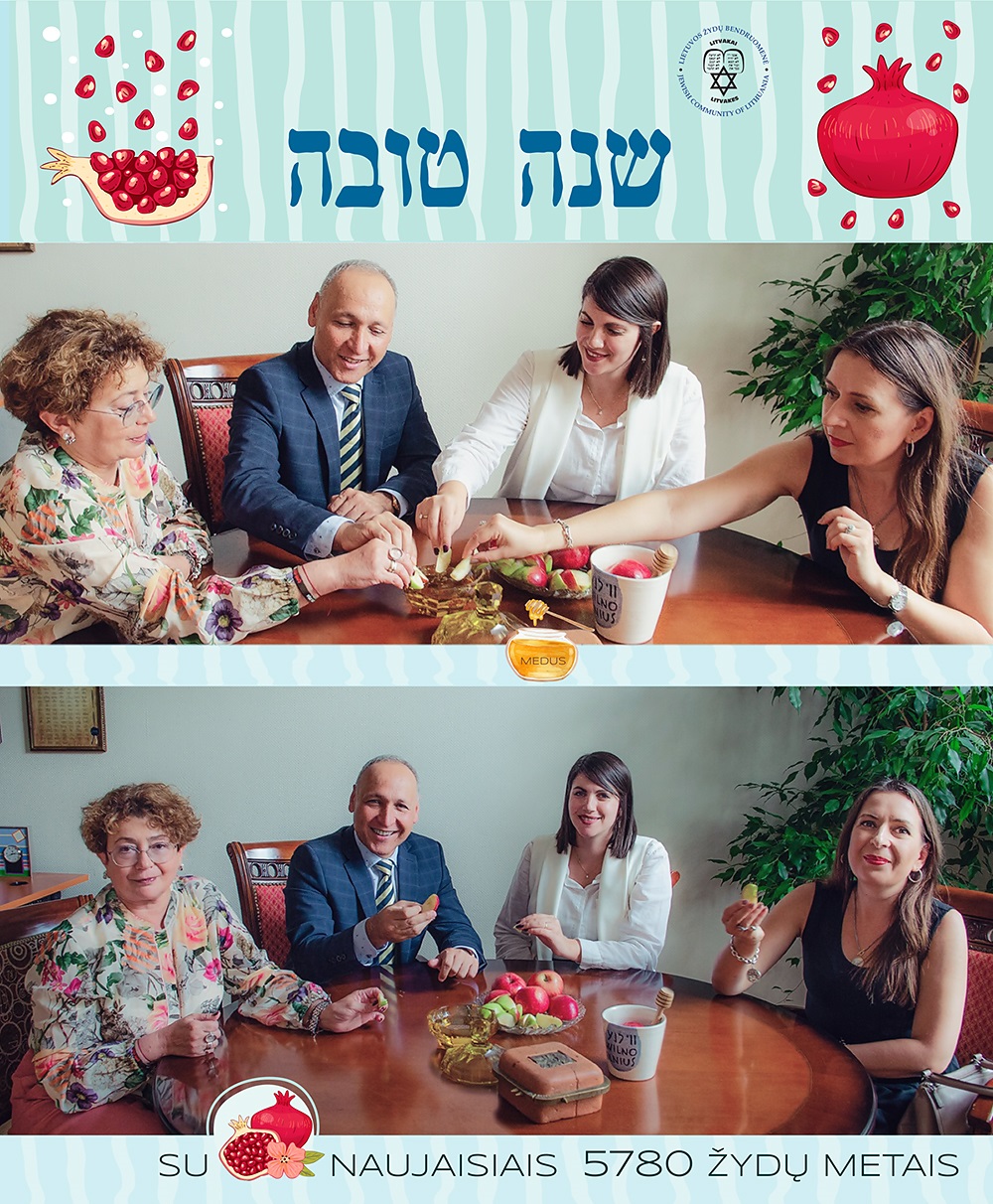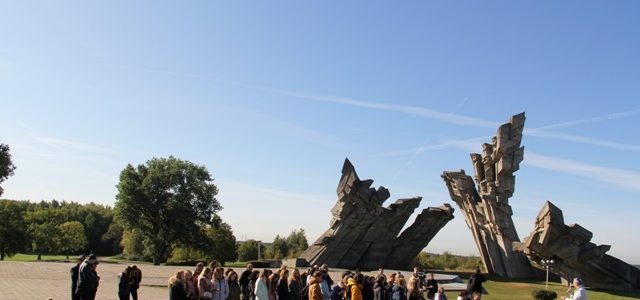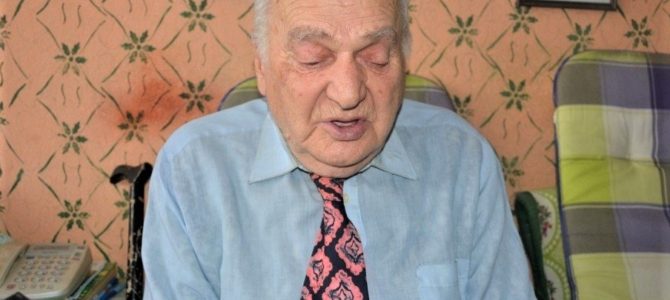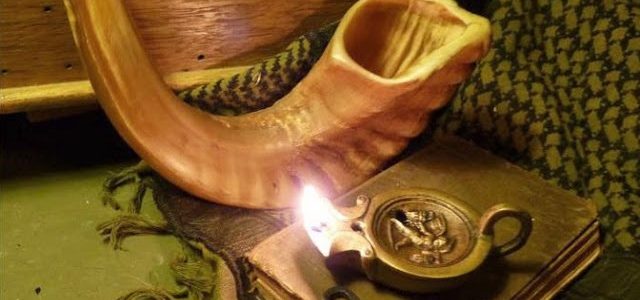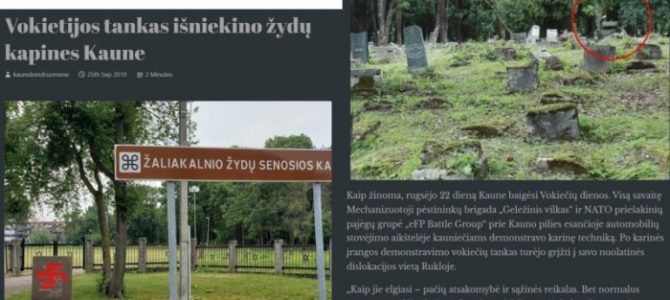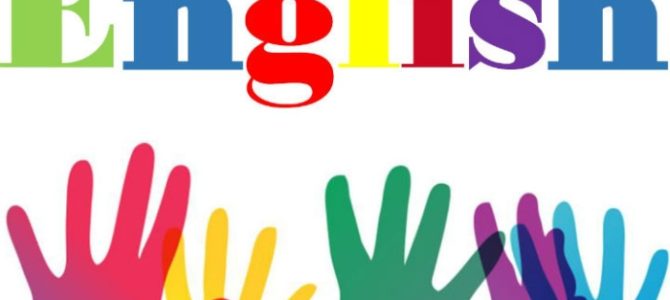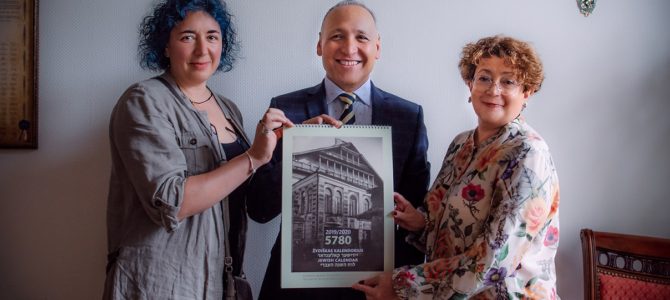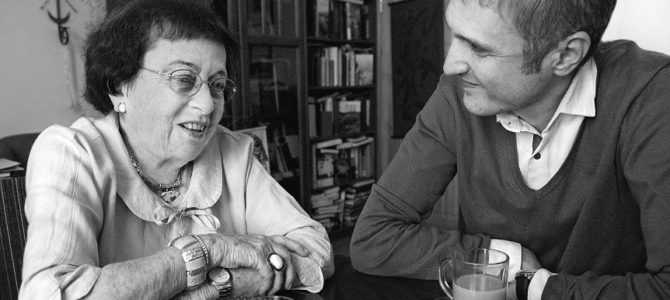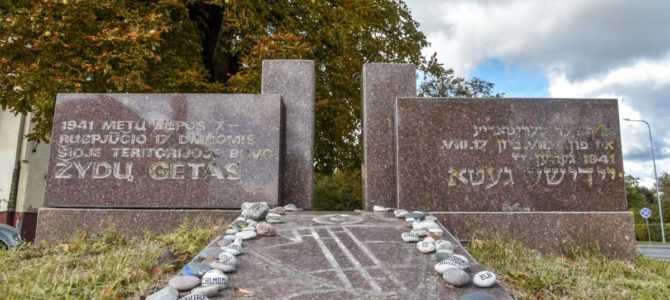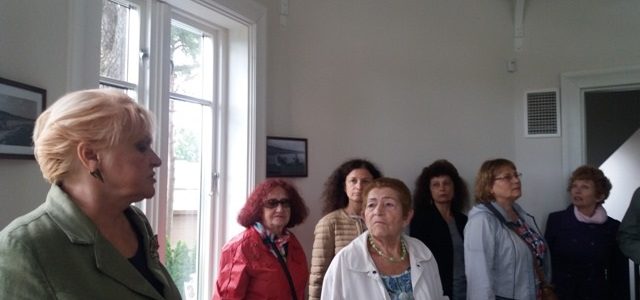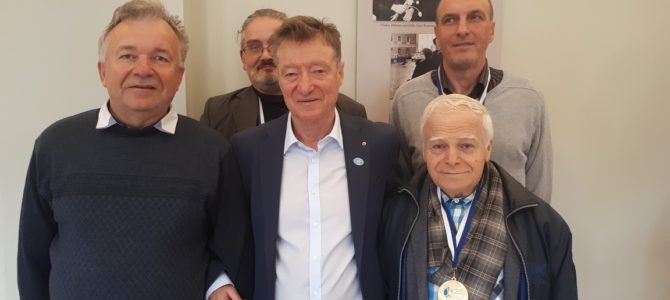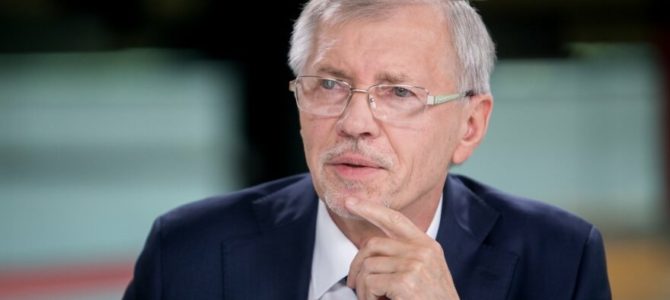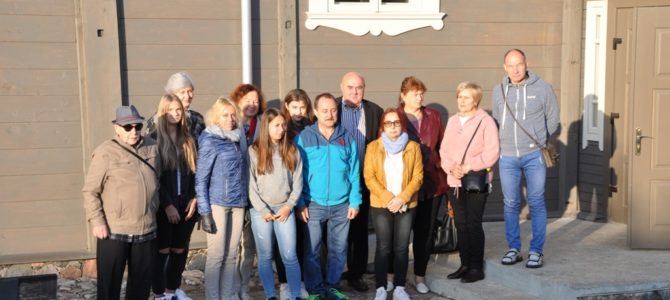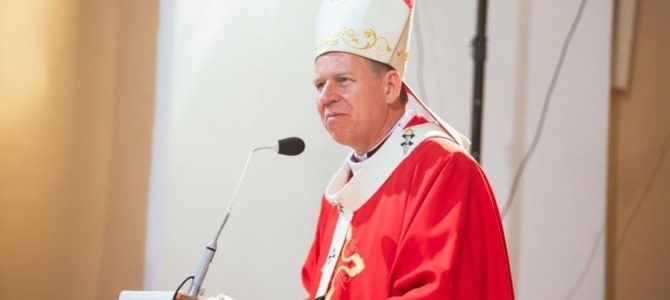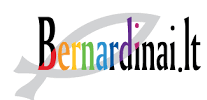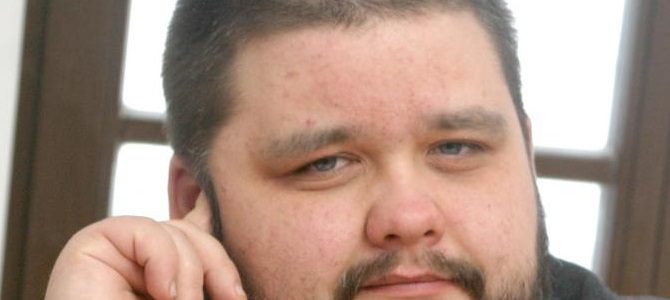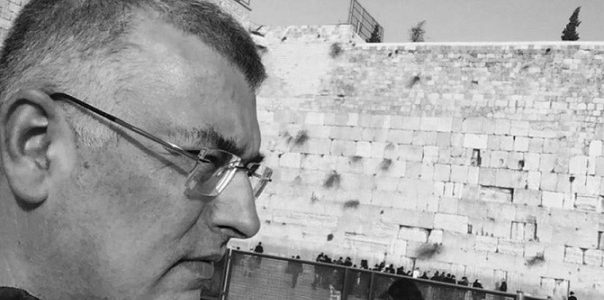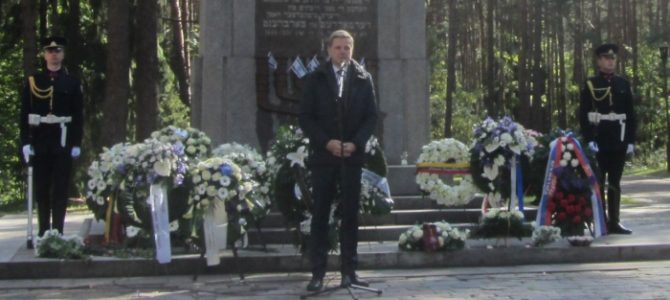Photo by J. Stacevičius/LRT
by Mindaugas Jackevičius, LRT.lt
We’re not ordering you, we’re only asking you to take a mirror and take a look at yourself, to open the history books and check out what happened in the dark chapters. That’s what Israeli’s new ambassador to Lithuania Yosi Levy said in an exclusive interview with LRT.lt . He thinks most Lithuanians don’t know what happened to the Jews of Lithuania during the war, that it is a story which hasn’t been told appropriately.
At the same time, he says, Israel doesn’t blame today’s Lithuania, and emphasizes mature and good relations between the countries.
On the person of Jonas Noreika, Levy said: “He wasn’t a murderer, but he collaborated with the devil.”
Levy, who began his work in Lithuania over a month ago, is a well-known writer and has worked as ambassador in Belgrade and worked at the embassies in Bonn, Berlin and Warsaw. In the interview we spoke about the fate of Lithuania’s Jews, bilateral relations and an intriguing book which will open the eyes of Lithuanians to a different side of Israel and its ambassador.


